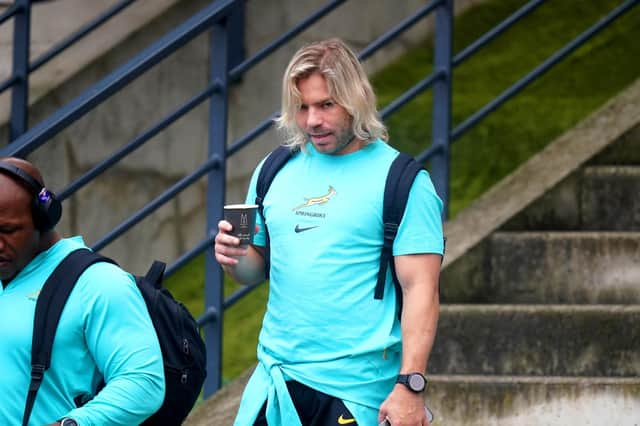Allan Massie: Rugby World Cup like Novak Djokovic facing the No 12 seed in a Wimbledon semi-final


Likewise it’s common opinion that this weekend’s semis are likely to be an anti-climax after the brilliance a week ago. I write this perforce before New Zealand play Argentina, and, though Argentina sometimes exceed expectations, the All Blacks are on a roll, and Argentina seem unlikely to succeed where Ireland failed. South Africa were so good against France, while England have struggled to beat Samoa and Fiji in their last two matches so that it is difficult to imagine them even running the Springboks close.
Nevertheless, Steve Borthwick has licked England into some short of shape, repairing much of the damage inflicted on them in the last years of Eddie Jones’s reign, and there’s such a cussedness about England and their leaders Owen Farrell and Courtney Lawes that it is rash to write them off.
Advertisement
Hide AdAdvertisement
Hide AdIn short it’s just possible, if very unlikely, that these matches may be close, neither New Zealand nor South Africa quite scaling the heights they achieved last weekend, all the more likely if sub-consciously they see they are already preparing for the final. Teams are not always at their best in a match that everybody expects them to win comfortably. In truth New Zealand and South Africa are each faced with a challenge they should meet comfortably; it’s like Novak Djokovic facing the No 12 seed in a Wimbledon semi-final.
Meanwhile, the URC gets under way this weekend, with Edinburgh travelling to Wales to meet the Dragons today and Glasgow entertaining Leinster at Scotstoun tomorrow. I guess that few players engaged in the World Cup will feature this weekend, few Irish ones anyway.
Still, it’s been a quick turnround for Cameron Redpath and Finn Russell, who both played for Bath last week, though Finn came off the bench earlier than had been intended. You might think players would benefit for a longer rest after the intensity of the World Cup, but getting back in action soon is not necessarily a bad way of coping with disappointment. It’s like getting back on to a horse or pony immediately after a fall.
Last season was quite encouraging for Glasgow, disappointing for Edinburgh, even though they brought off one of the best Scottish wins in the European competition when they thoroughly outplayed and defeated a strong Saracens team. Indeed, they were so good that day that their poor form in the URC was well nigh inexplicable.
It can’t be said too often that the excellence of Ireland for some years now has been based on the excellence of the Provinces, first Munster and now Leinster. Likewise the inconsistency of both Scotland and Wales – capable of notable victories but also too frequent defeats – reflects the inconsistency and – too often – inadequacy of the clubs.
Here, of course, we have another cause for anxiety, the poor quality of our age-group rugby over the last few years. One felt sorry for the boys in the under-20 Six Nations last spring. They looked, whatever their natural ability might be, quite simply a long way short of the level required for success. That inadequate preparation goes back a good many years.
It’s true of course that any single year’s crop of under-20 internationalists will often produce only two, three or four who will develop sufficiently to find a place in the Scotland squad. Nevertheless there are very few players who establish themselves in the national team who haven’t first impressed at age-group level. This is true of all the Six Nations countries, recently most markedly Ireland and France. I doubt if there’s a quick cure, but unless the development programme is improved, the fortunes of the present Scotland team will prove to be the best we can do.
To end on a different note I’m delighted to see that Rory Sutherland has found a club – Oyonnax, just promoted to the French Top 14 – but puzzled that neither Edinburgh nor Glasgow went for him. Still, I hope he flourishes in France, fit enough to find the form that made him a Lions prop.